Choosing the Best Sealant for Marble Countertops
Marble countertops exude elegance and sophistication, making them a popular choice for kitchens and bathrooms. However, marble is a porous natural stone that is susceptible to staining and etching if not properly sealed. Applying a high-quality sealant is essential for protecting marble countertops and preserving their beauty for years to come. In this comprehensive guide, we’ll explore the factors to consider when choosing the best sealant for marble countertops and provide recommendations for top products on the market.
Understanding Marble and Its Sealing Needs
Marble is a metamorphic rock composed primarily of calcite, dolomite, or serpentine minerals, giving it its distinctive veining and color variations. While marble is prized for its beauty and durability, it is inherently porous, which means it can absorb liquids and become stained if not adequately protected. Sealing marble countertops creates a protective barrier that helps prevent absorption of liquids and minimizes the risk of staining and etching.
When selecting a sealant for marble countertops, it’s essential to choose a product specifically formulated for natural stone surfaces. Look for sealants that provide long-lasting protection against water, oil, and other common household spills. Additionally, opt for sealants that enhance the natural beauty of the marble without altering its appearance or creating a glossy finish, unless desired.
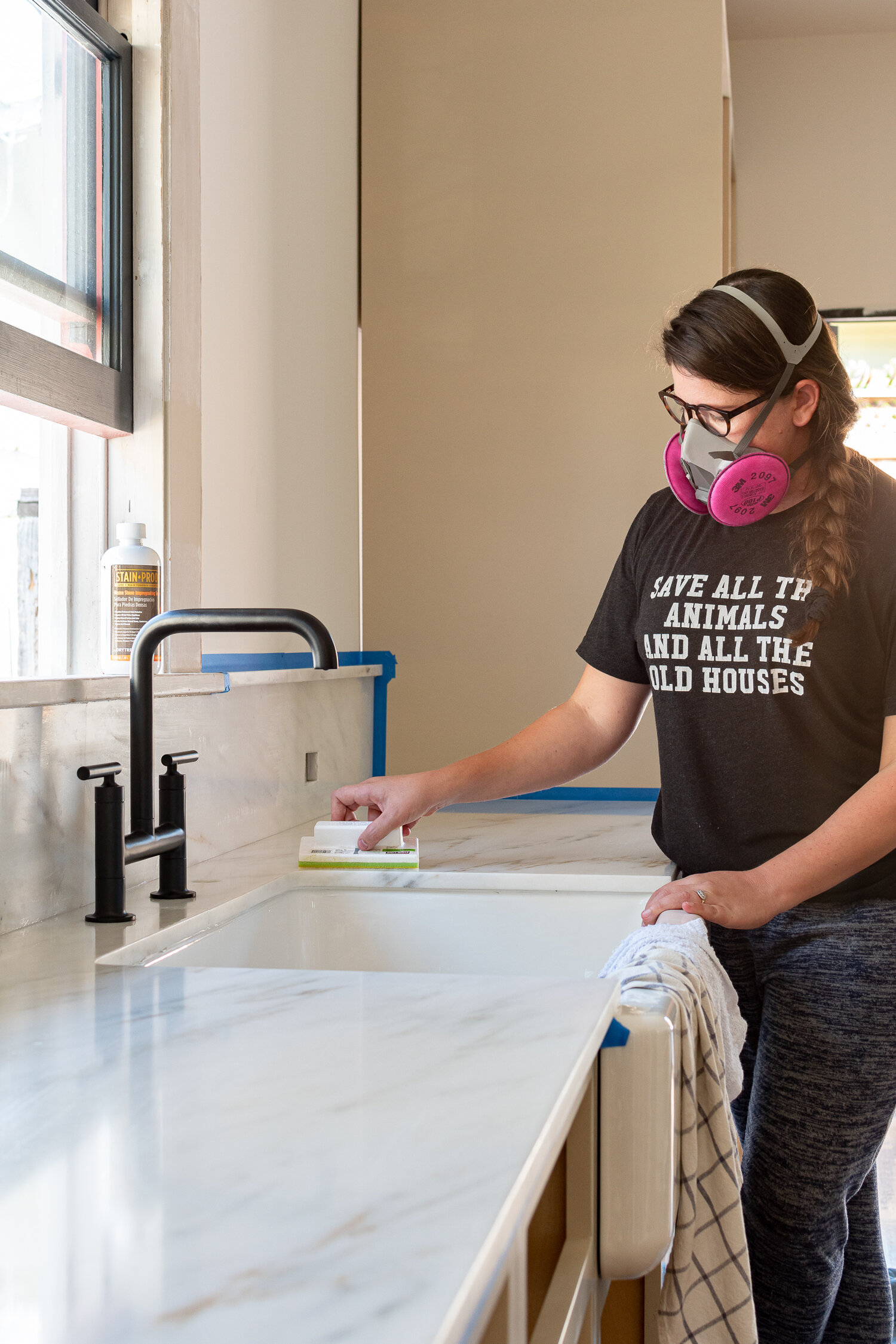
Types of Sealants for Marble Countertops
There are two main types of sealants commonly used for marble countertops: topical sealants and penetrating sealants. Topical sealants form a protective layer on the surface of the marble, acting as a barrier against stains and moisture. These sealants are typically easier to apply and provide immediate protection, but they may require more frequent reapplication, especially in high-traffic areas.
Penetrating sealants, also known as impregnating sealants, penetrate the pores of the marble to create an invisible barrier against stains and moisture from within. These sealants offer long-lasting protection without altering the appearance or texture of the marble. While penetrating sealants may require more time and effort to apply, they provide superior protection against staining and etching, making them an ideal choice for high-end marble countertops.

Factors to Consider When Choosing a Sealant
When choosing the best sealant for marble countertops, several factors should be considered to ensure optimal performance and longevity. First and foremost, consider the type of marble you have and its specific sealing requirements. Some types of marble may be more porous or prone to staining than others, requiring a more robust sealant for adequate protection.
Additionally, consider the level of maintenance and reapplication required for the sealant. While topical sealants may offer immediate protection, they may need to be reapplied more frequently, especially in areas with heavy use. Penetrating sealants, on the other hand, provide long-lasting protection with less frequent reapplication but may require more time and effort to apply initially.
It’s also essential to consider the environmental and health impacts of the sealant. Look for low-VOC (volatile organic compound) or water-based sealants that are safe for use in indoor environments and environmentally friendly. Avoid sealants containing harsh chemicals or solvents that may emit harmful fumes or pose health risks.
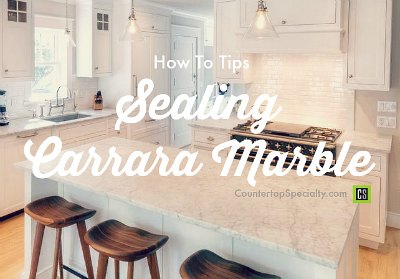
Top Sealant Products for Marble Countertops
There are several top-rated sealant products available on the market specifically formulated for sealing marble countertops. Some popular options include:
StoneTech BulletProof Sealer: This premium penetrating sealer provides maximum protection against stains and etching while preserving the natural beauty of marble countertops. It offers long-lasting protection and is suitable for both interior and exterior use.
Miracle Sealants 511 Impregnator: This penetrating sealer is designed to provide superior protection against water and oil-based stains without altering the appearance of the marble. It is easy to apply and offers long-lasting protection with a single application.
Tuff Duck Granite, Grout and Marble Sealer: This water-based penetrating sealer is ideal for use on marble countertops, providing excellent protection against stains, moisture, and etching. It is easy to apply and dries quickly, leaving behind a natural, matte finish.
Black Diamond Stoneworks Granite Sealer: This professional-grade penetrating sealer is specifically formulated for use on natural stone surfaces, including marble countertops. It offers long-lasting protection against stains and etching while enhancing the natural beauty of the marble.
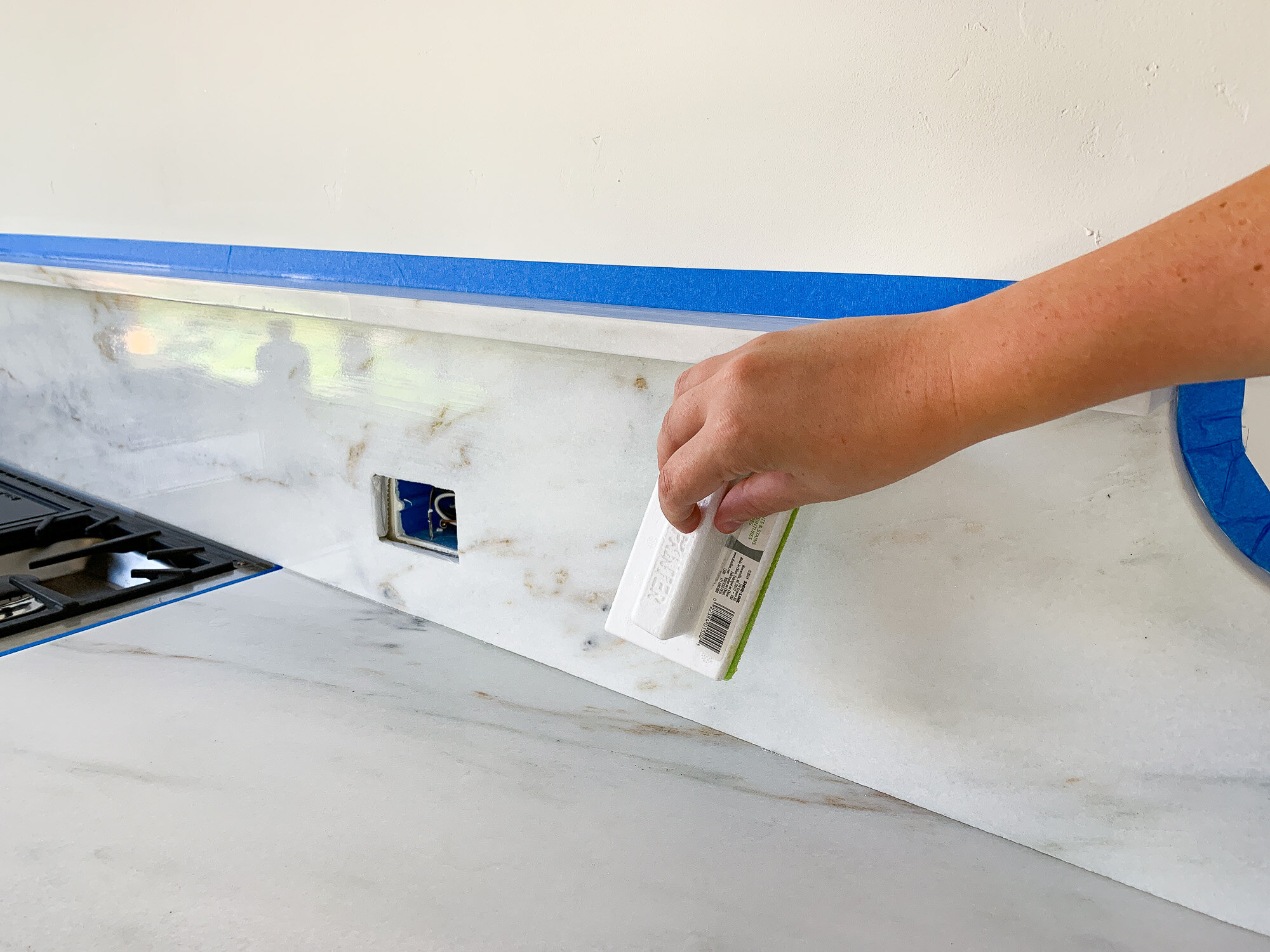
Common Mistakes to Avoid When Sealing Marble Countertops
Overlooking Pre-Sealing Preparation: Properly clean and dry the marble surface before applying the sealant to ensure maximum penetration and effectiveness.
Applying Too Much Sealant: Applying excess sealant can lead to a hazy or streaky finish on the marble surface. Follow the manufacturer’s instructions for proper application and use a thin, even coat.
Skipping Regular Maintenance: Even with a quality sealant, it’s essential to clean and maintain marble countertops regularly to prevent staining and etching. Use mild, pH-neutral cleaners and avoid abrasive scrubbing pads.
Ignoring Reapplication: Sealants wear off over time, especially in high-traffic areas. Be sure to monitor the condition of your marble countertops and reapply the sealant as needed to maintain optimal protection.

How often should I seal my marble countertops?
The frequency of sealing depends on factors such as the type of marble, level of use, and type of sealant used. In general, it’s recommended to seal marble countertops every 6 to 12 months for optimal protection.
Can I use a marble sealer on other types of natural stone?
While some sealants may be suitable for use on multiple types of natural stone, it’s essential to choose a product specifically formulated for the type of stone you’re sealing to ensure compatibility and effectiveness.
Do I need to seal both sides of marble countertops?
Sealing the underside of marble countertops is not necessary, as it is typically not exposed to moisture or staining agents. Focus on sealing the top and edges of the countertops, where spills and stains are more likely to occur.
Can I use a sealant to remove stains from marble countertops?
Sealants are designed to prevent staining, not remove existing stains. For stain removal, consider using a poultice or specialty marble cleaning product specifically formulated to lift stains from the surface of the marble.
Are all sealants safe for use on food preparation surfaces?
While many sealants are safe for use on food preparation surfaces once fully cured, it’s essential to choose a product labeled as food-safe and to follow the manufacturer’s instructions for proper application and curing time.
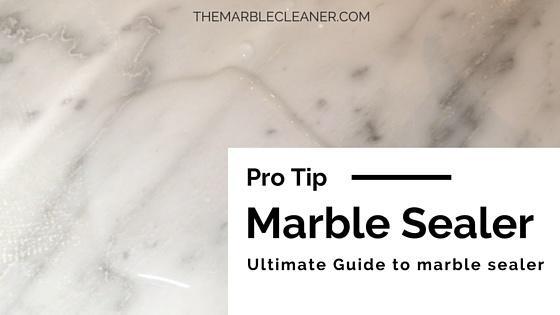
Residential Stone Countertop Sealing – Sir Grout
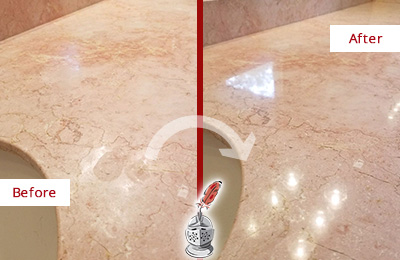
A Simple DIY Test Takes the Guesswork out of Sealing Marble
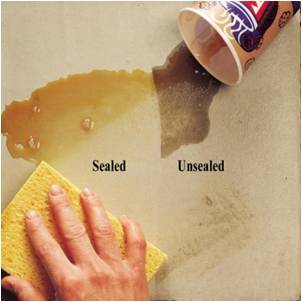
Marble Tile in a Bathroom: Would I Do It Again?! – Driven by Decor
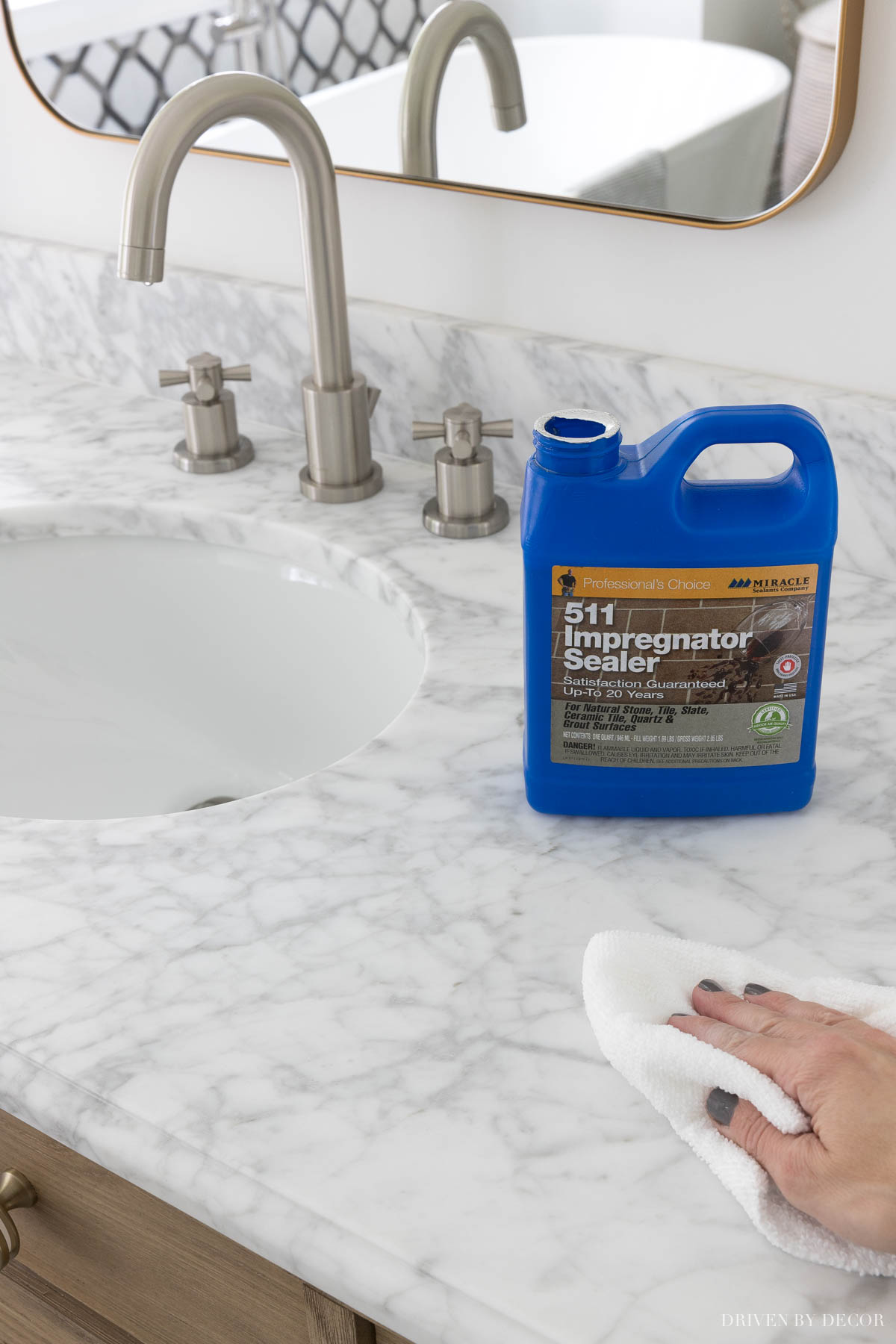
Choosing the Best Sealer for Your Marble Countertops
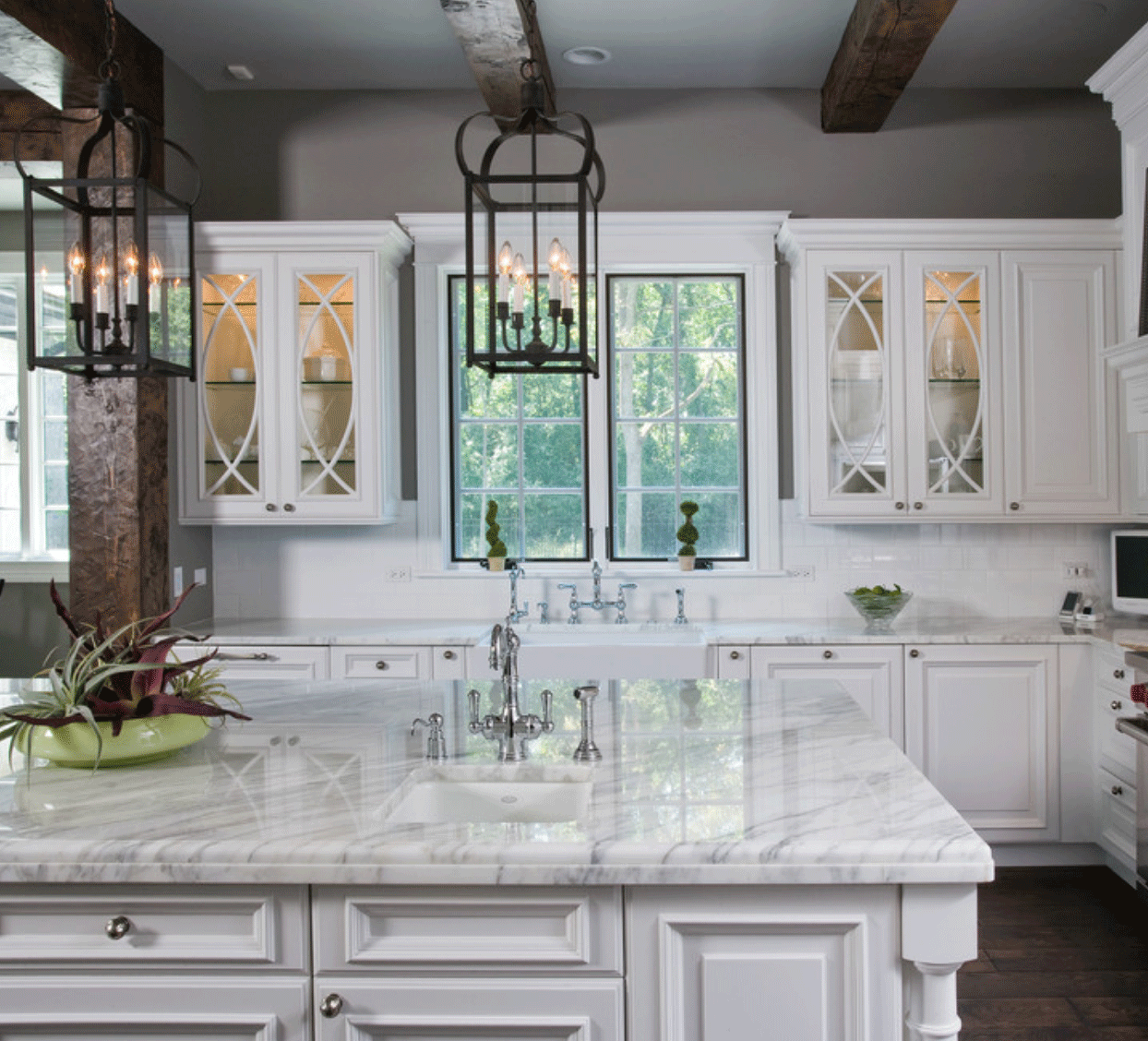
Related articles:
- Marble Countertops Backsplash
- DIY Refinishing Cultured Marble Countertops
- Marble Countertops In Bathrooms
- Cultured Marble Countertops
- Gray Kitchen Cabinets Marble Countertops
- Modern Kitchen Marble Countertops
- Refinish Cultured Marble Countertop
- Carrara Marble Countertops Bathroom
- Marble Countertops Types
- How To Refinish Marble Countertops